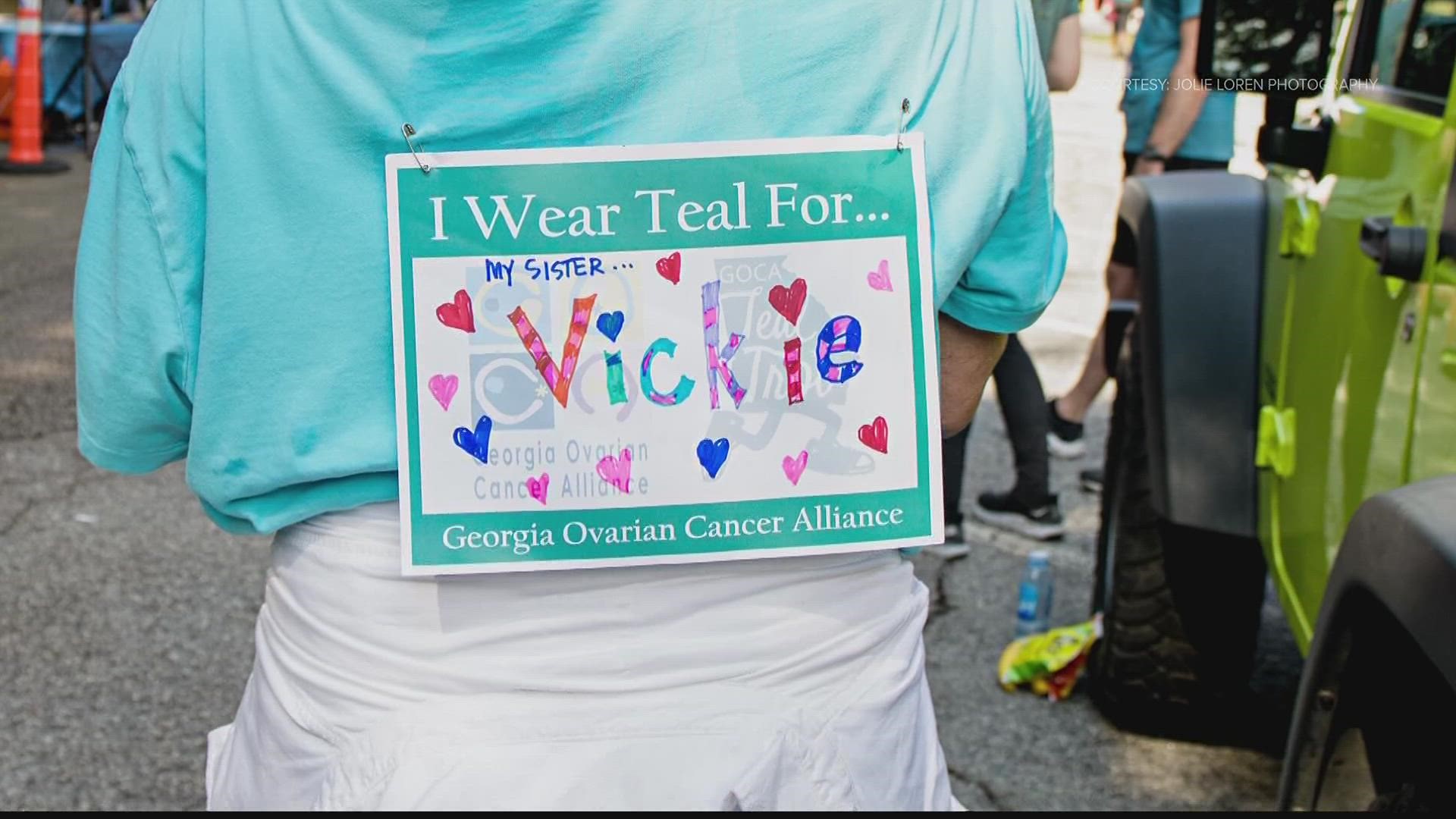ATLANTA — September is Ovarian Cancer Awareness Month and this year, Georgia organizations are encouraging women to check for the signs because the disease could easily go undetected.
The American Cancer Society (ACS) said a woman’s risk of getting ovarian cancer is about 1 in 78 in her lifetime, and with no reliable way to test for it in women who do not have symptoms, it is important to be aware of how this disease can impact a woman’s body.
Georgia Ovarian Cancer Alliance Board President and GSK, Our Way Forward Advocate, Kim Emory knows this too well. She was diagnosed with ovarian cancer in March 2006, but even with symptoms, it took weeks of countless tests and doctor visits to find the root of her pain.
“I had an X-ray, I had an upper GI, I had a lower GI, I had a colonoscopy and one time she (her physician) even said that I had pancreatitis and put me on a diet. And like I said, I had all of the classic symptoms of ovarian cancer,” Emory said.
One doctor even told her the pain she was having was all in her head and she needed to see a psychiatrist.
“It wasn't until early 2006, I went to a Lunch & Learn given by the George Ovarian Cancer Alliance, and I took one of their risk and symptom cards, and I was able to check off all of those symptoms,” she recounted.
Eventually, Emory got the news that she had stage two ovarian cancer and immediately started chemotherapy. Her journey to survival led her to advocacy where she is now dedicated to educating women on the importance of knowing the risks.
“I was trying to find out who Kim was again, because with this diagnosis, you know, you lose a lot of yourself,” she said. “I didn't want another woman to be, quote unquote, as ignorant as I was about this particular disease.”
She encourages women to learn about their bodies because ovarian cancer symptoms can mimic various health conditions that are attributed to non-cancerous diseases. This includes abdominal pain, changes in diet, bloating and changes in bathroom habits.
According to the ACS, women should check in with their doctor if these symptoms last more than 12 days a month.
Additionally, Emory believes the healthcare system should have better communication when it comes to listening to patients, and be more aware of the disparities in care when it comes to Black women compared to white women.
Although white women are more likely to be diagnosed with ovarian cancer, the National Cancer Institute (NCI) cites Black women as being more likely to receive a late diagnosis and die from the disease. They also cite a reduction in the dose of chemotherapy and early discontinuation of therapy when it comes to treating the disease in Black women.
Despite this, ACS reports multiple ways all women can take preventative measures to decrease their risk of an ovarian cancer diagnosis such as oral contraceptives, maintaining a healthy lifestyle, gynecological surgery (hysterectomies) and childbirth.
However, Emory believes the best thing women can do when it comes to a diagnosis is to continue to push for answers, even if no one else is listening.
“That's one of the things that I tell women all the time. If you don't get an answer from one doctor, seek out a second opinion. If you are consistently getting ill, you should seek a second opinion," she said.
“Be your own advocate. You are your best advocate,” Emory added.

